
BDO Malaysia, in collaboration with the Centre for Entrepreneurial Sustainability (CENTS) and the Faculty of Accountancy and Management (FAM), organised a webinar titled “Business continuity and sustainability during the Covid-19 pandemic” on 29 October 2021 via Zoom.
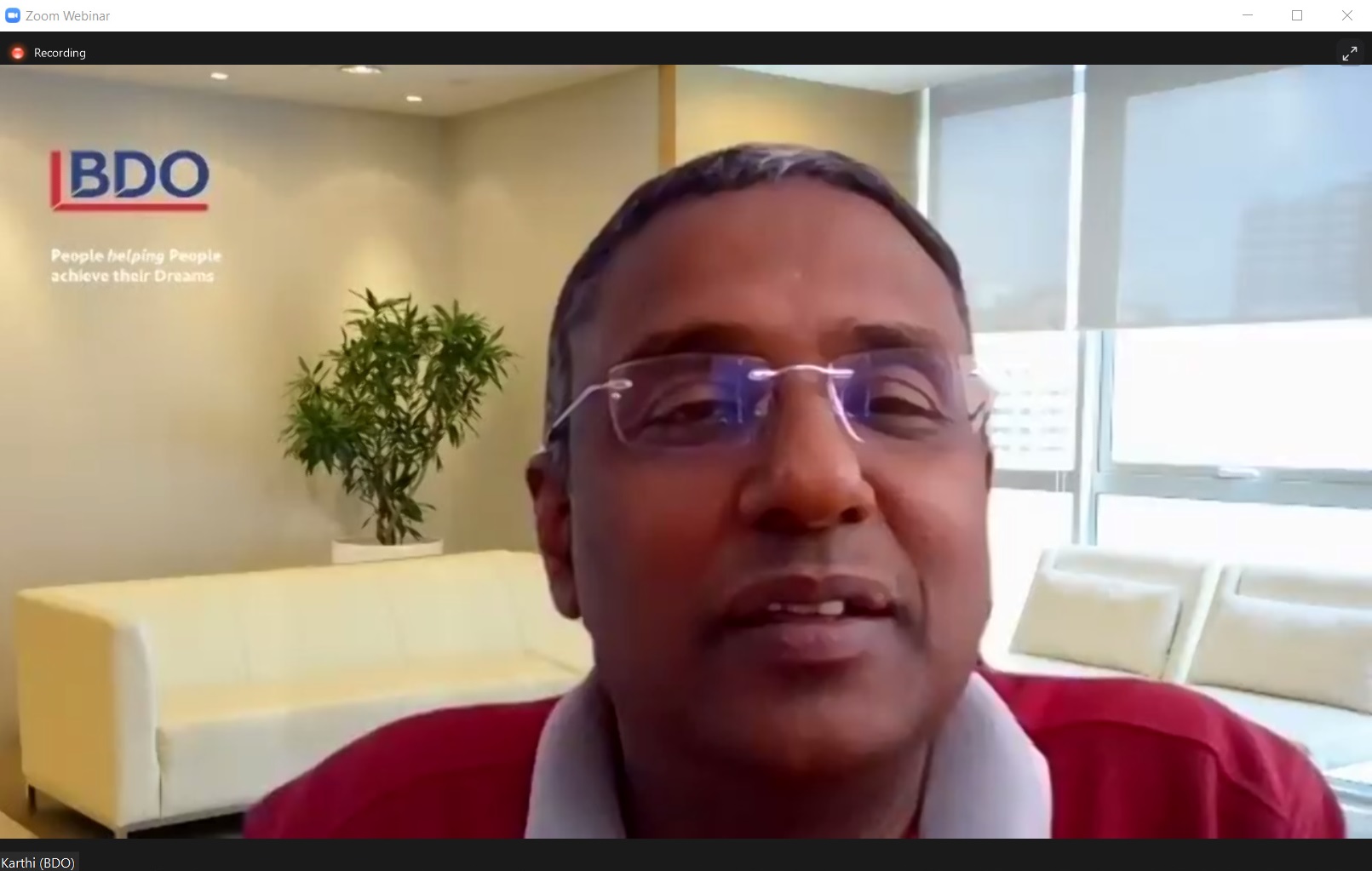
Karthigayan delivering his talk
Present to deliver the talk was BDO Malaysia Executive Director of Advisory Karthigayan Supramaniam. Karthigayan has over 15 years of experience in internal audit and risk management in various industries, including manufacturing, trading, construction, property development, aviation and oil & gas. He currently manages a portfolio of internal audit and risk management engagements. He also performs IT General Control audit engagements, supporting relevant statutory financial audits as required and several pre and post Enterprise Resource Planning (ERP) implementation review for public listed companies. Before joining BDO, he was an audit and risk manager at a large diversified group listed on the Malaysian Stock Exchange.
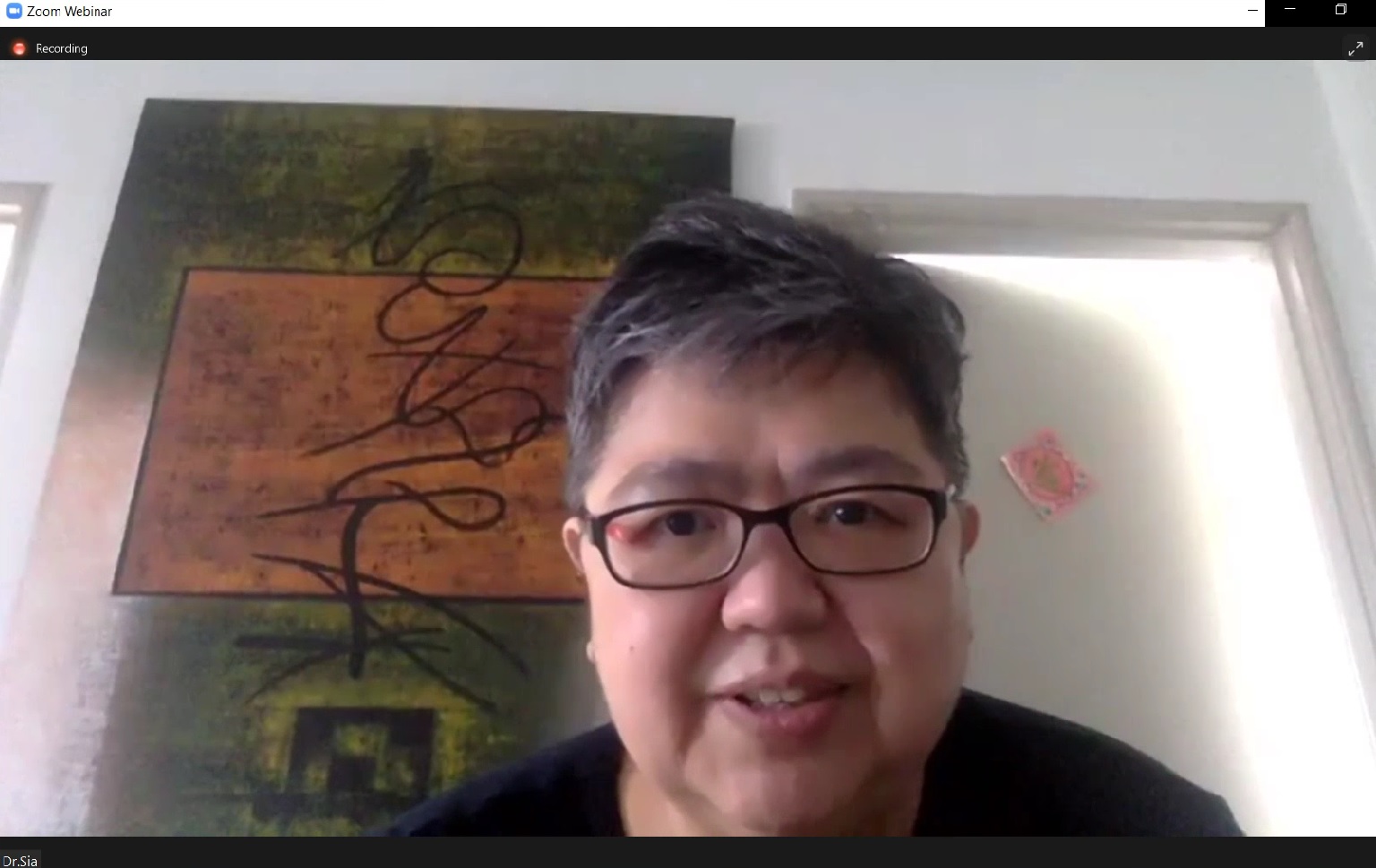
Dr Sia thanking Karthigayan for the sharing his knowledge
FAM Dean Dr Sia Bee Chuan, on behalf of UTAR, expressed her gratitude to Karthigayan in her welcome remarks. She said, “We are always seeking and exploring collaboration with industry players and international partners to enhance the learning experience of our students and to widen their exposure for impactful learning outcomes. We certainly believe that the sharing today through your collaboration with us will definitely enrich, engage and also create memorable experiences, and hopefully get good feedback from the students.”
In his talk, Karthigayan first talked about uncertainties and the impact of the Covid-19. He said, “The biggest issue with the Covid-19 is that we do not know what we will be facing and what will happen tomorrow.” He pointed out that not only the risks brought by the pandemic aggravated the situation, but also some internal issues such as the change of government. He highlighted that uncertainty is the new normal.
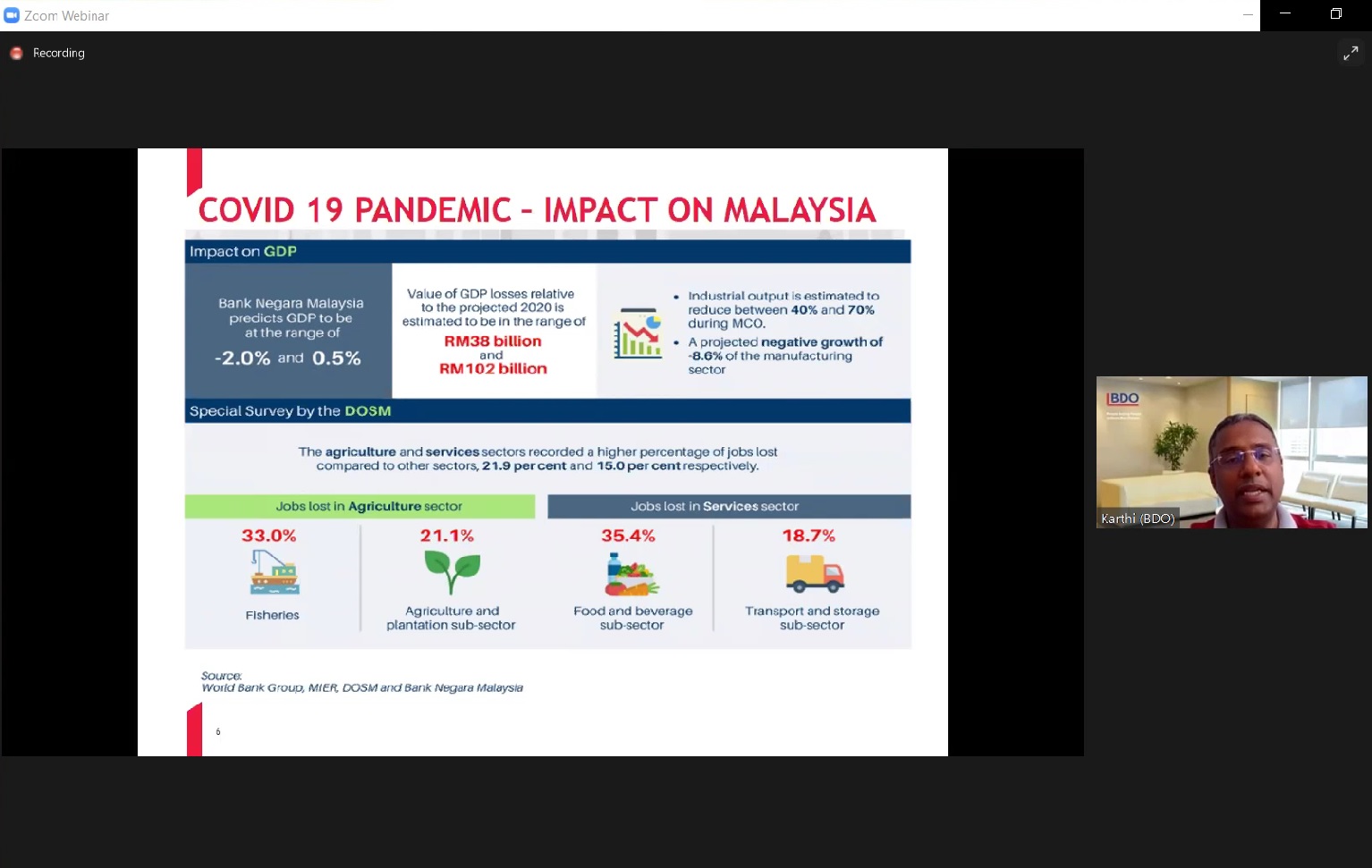
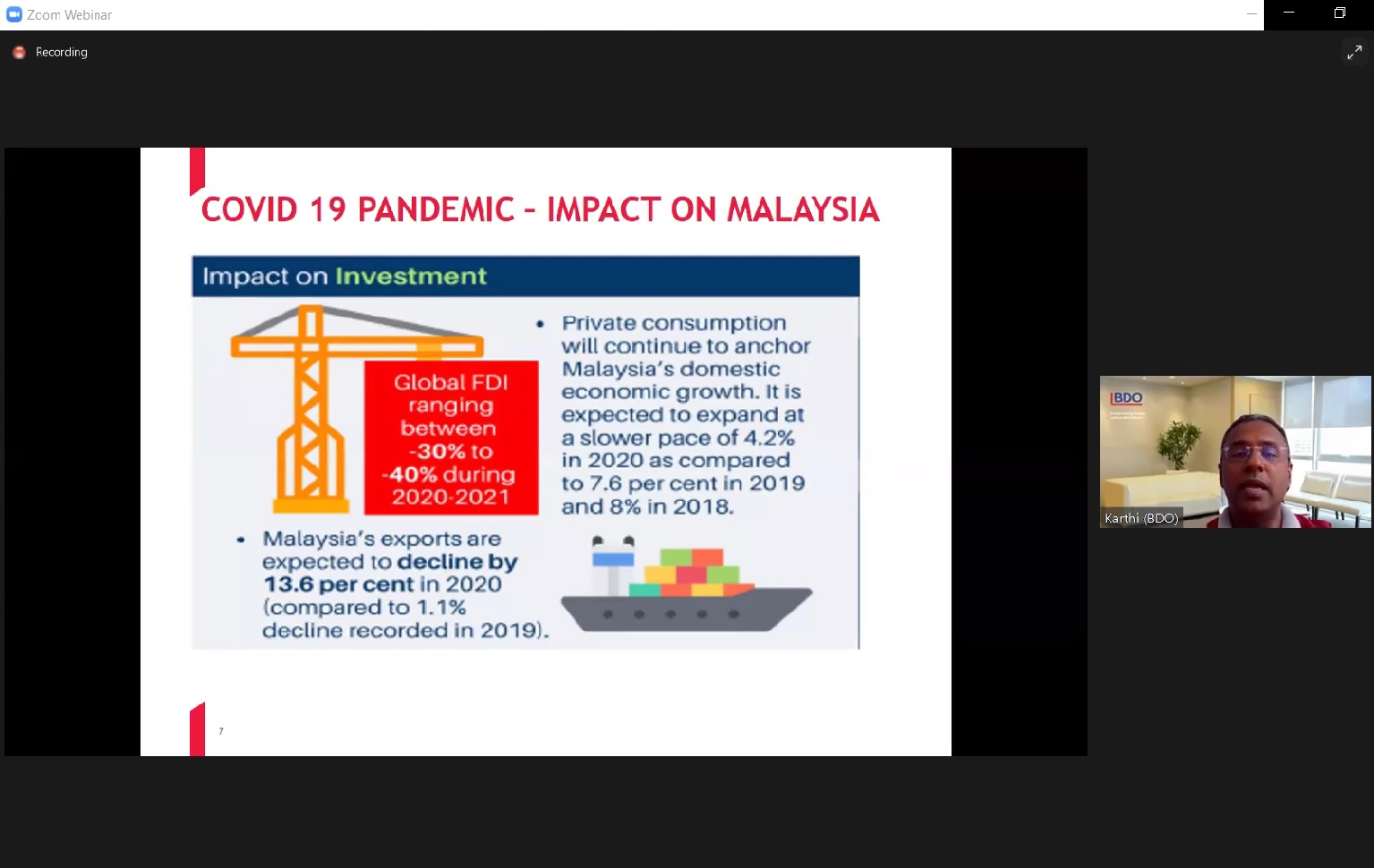
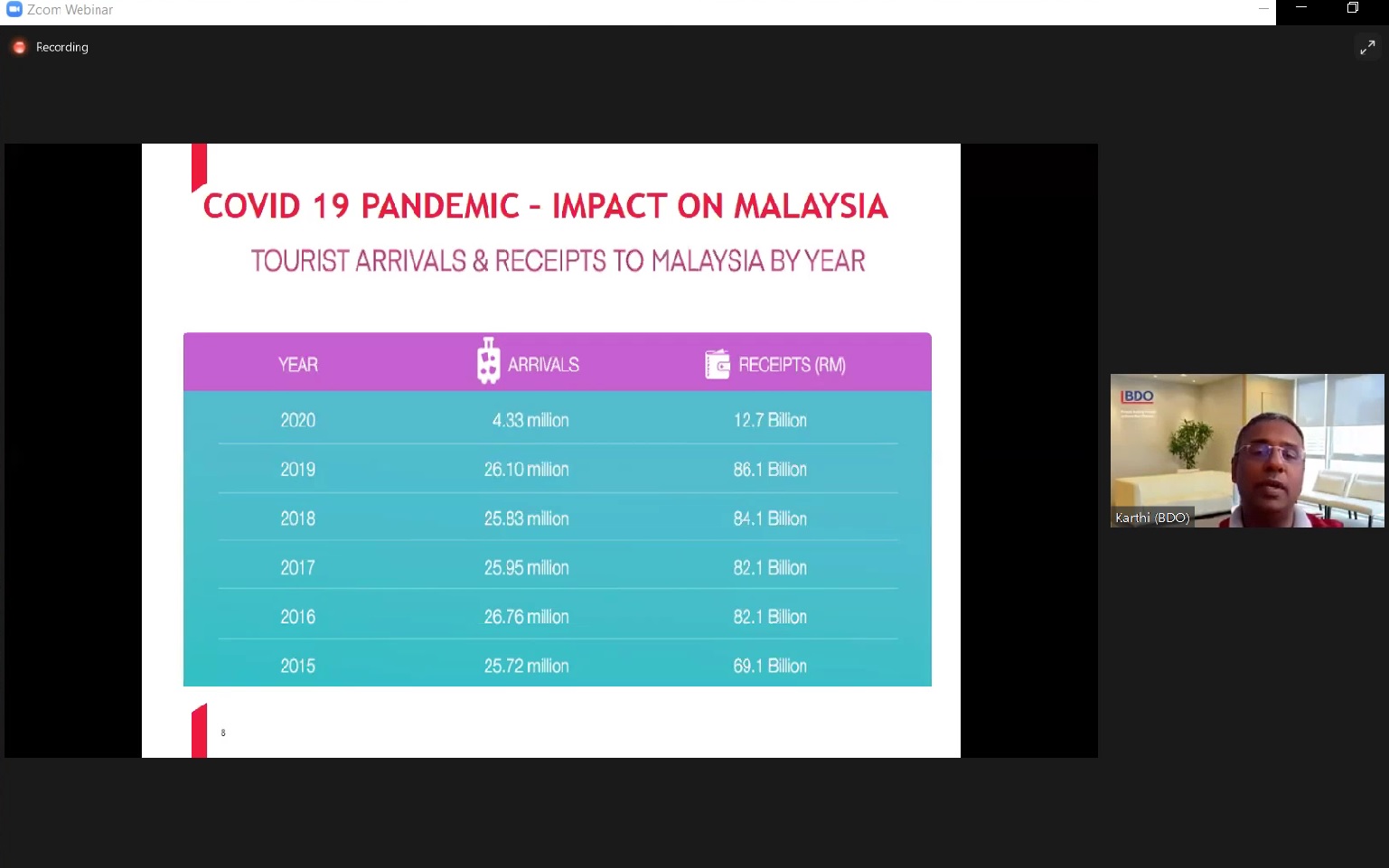
Karthigayan explaining the impact of the pandemic on GDP, foreign direct investment and the number of tourists to Malaysia
He presented key statistics done by the Department of Statistics Malaysia, showing that 67.8 per cent of SME companies had no income during the first Movement Control Order (MCO) in March 2020. “If the SME employees were paid in full, 53.4 per cent of the companies can only sustain up to two months,” he said. He mentioned that the main problems that the companies faced were salary payment, no customer and rental payment. He also shared the survey done by The Associated Chinese Chambers of Commerce and Industry of Malaysia (ACCCIM), showing that up to the second half of 2021, companies still faced 3C issues—cash flows, cost and credit.
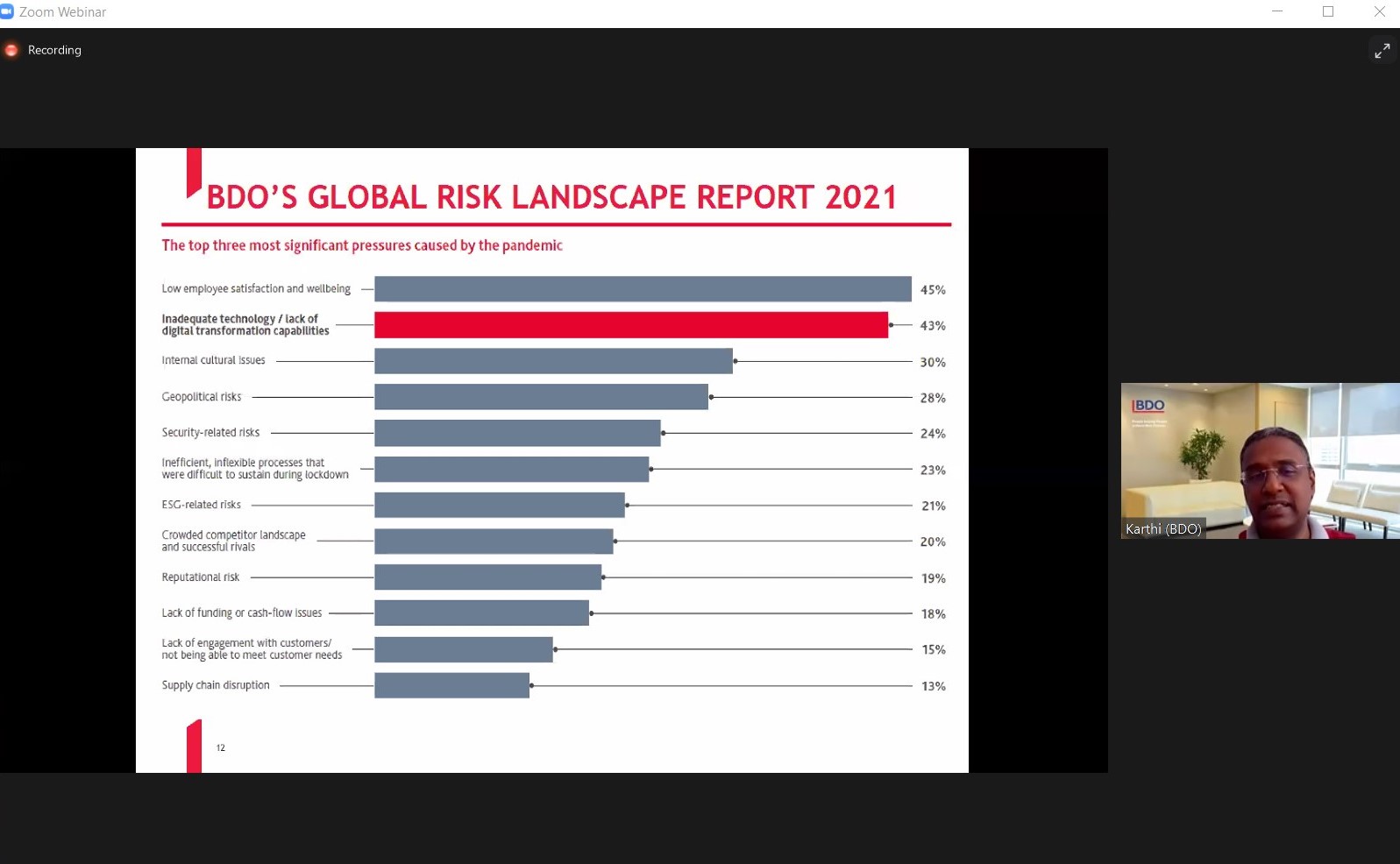
Karthigayan sharing the top three most significant pressures caused by the pandemic
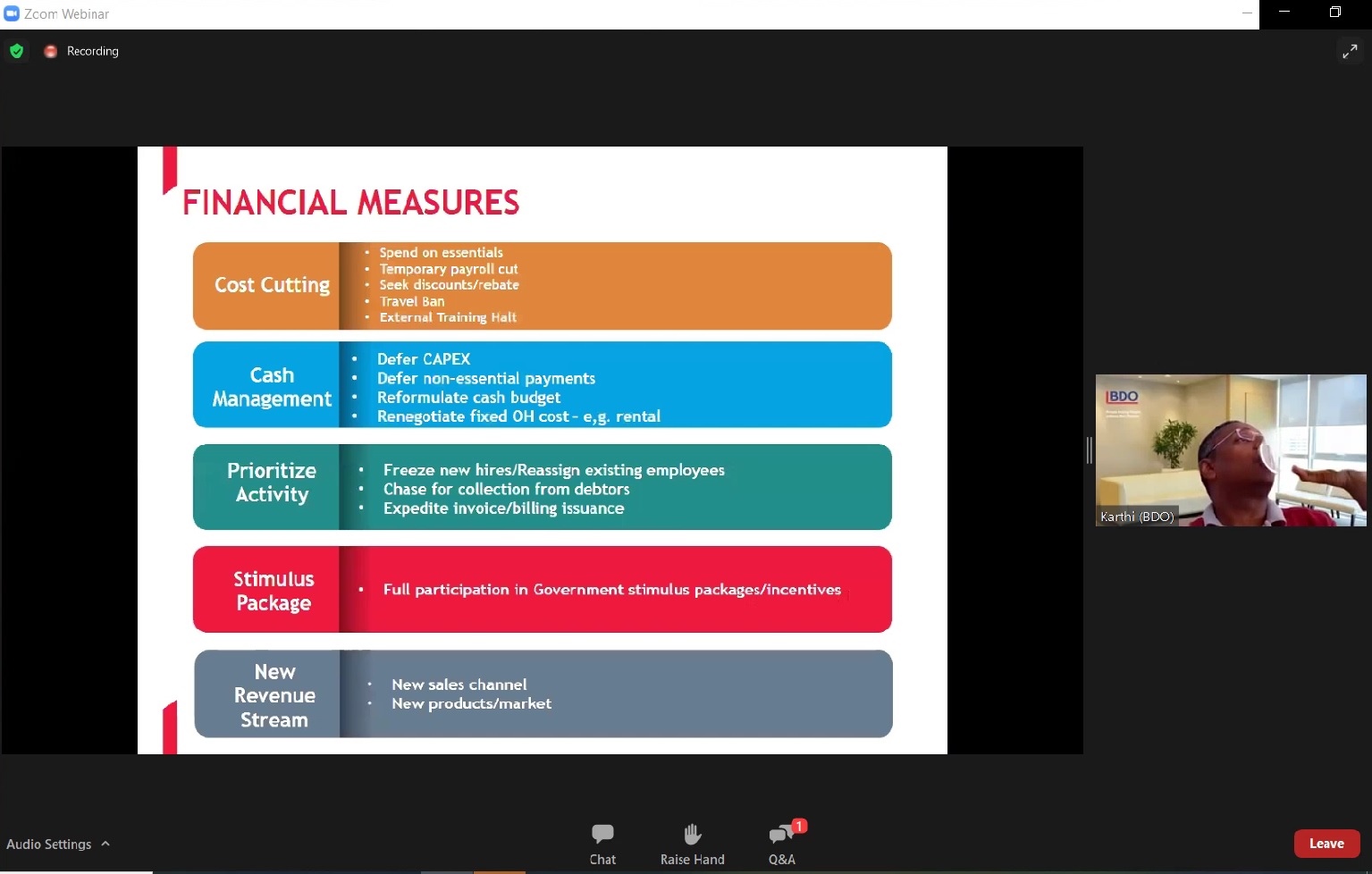
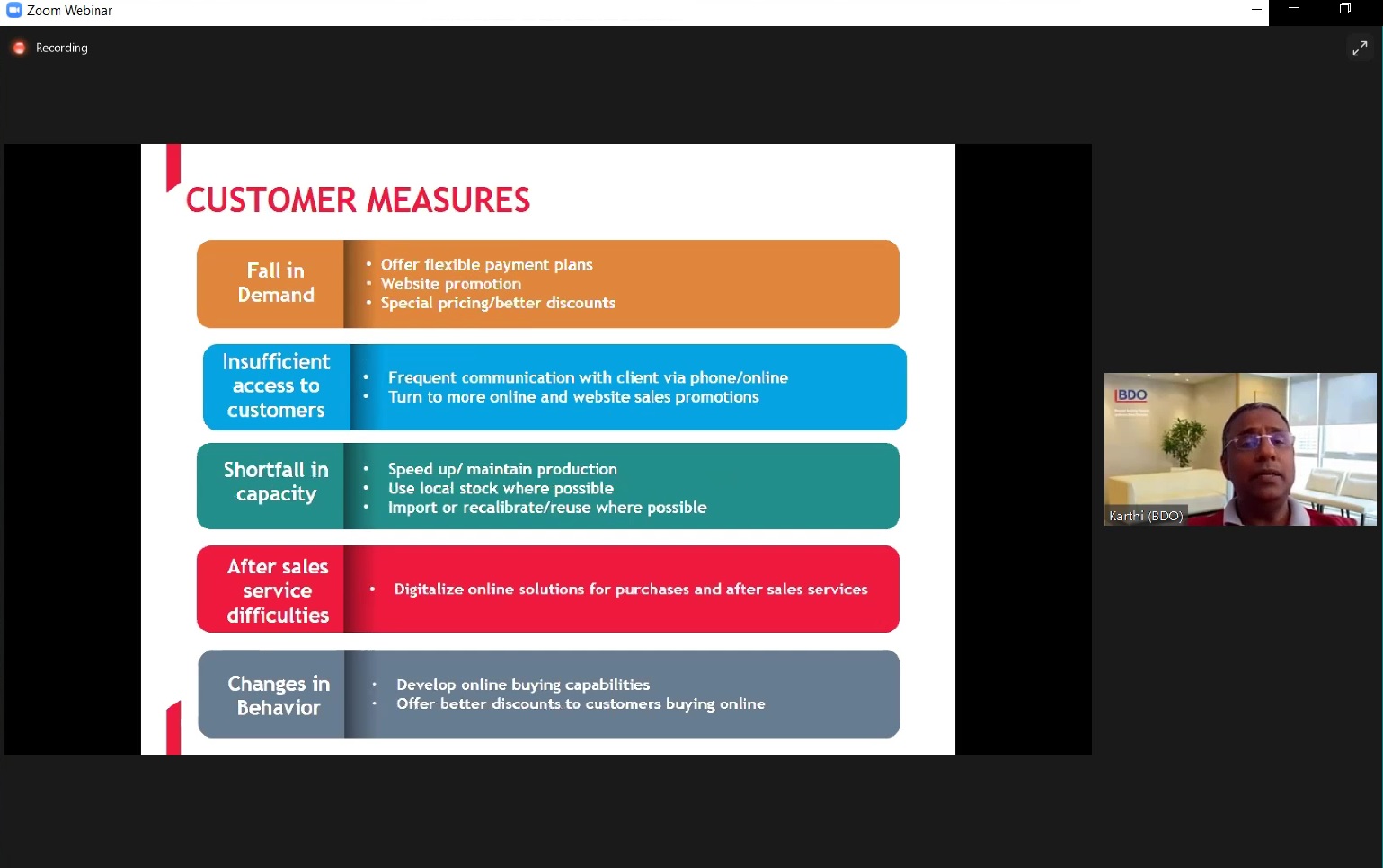
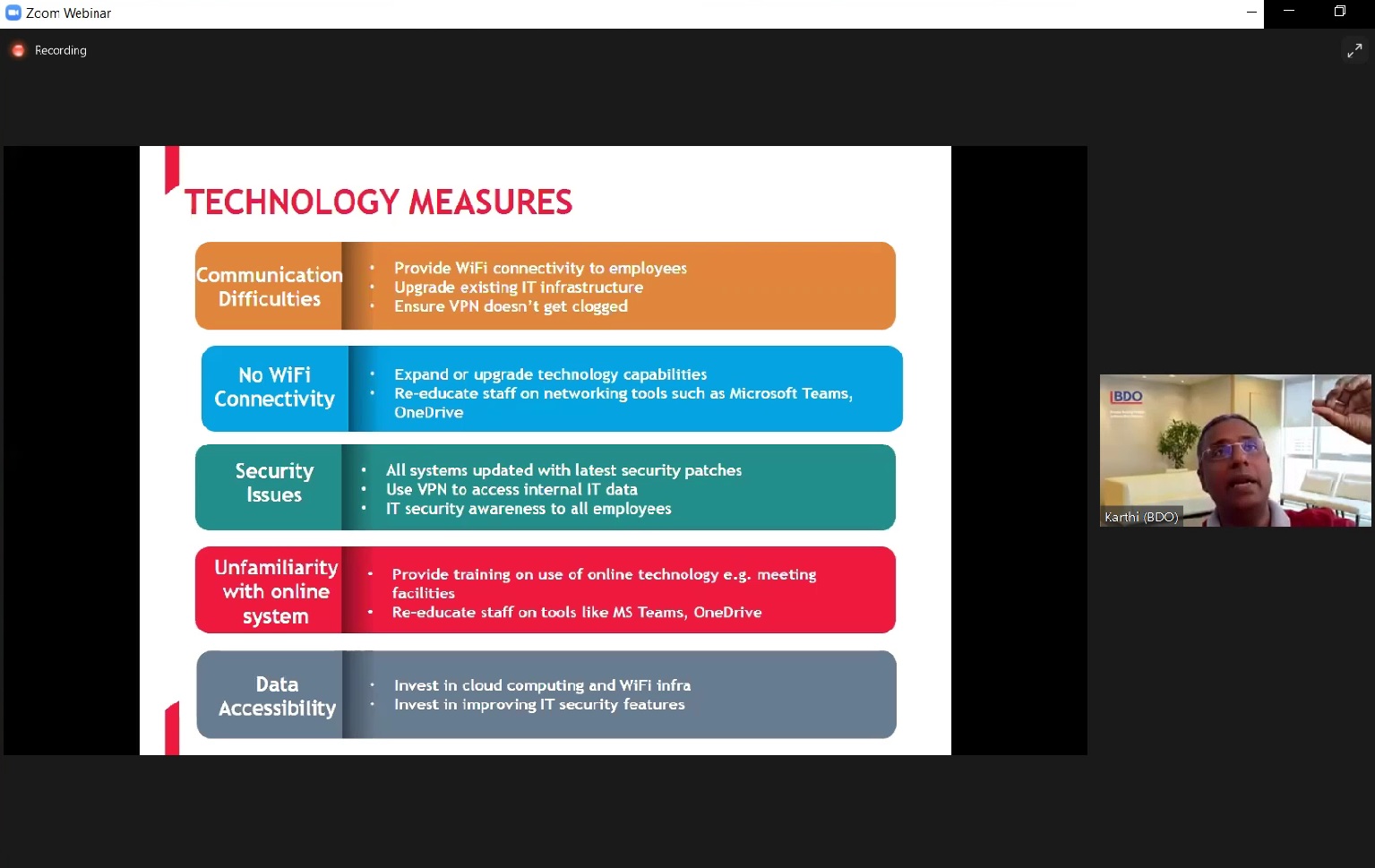
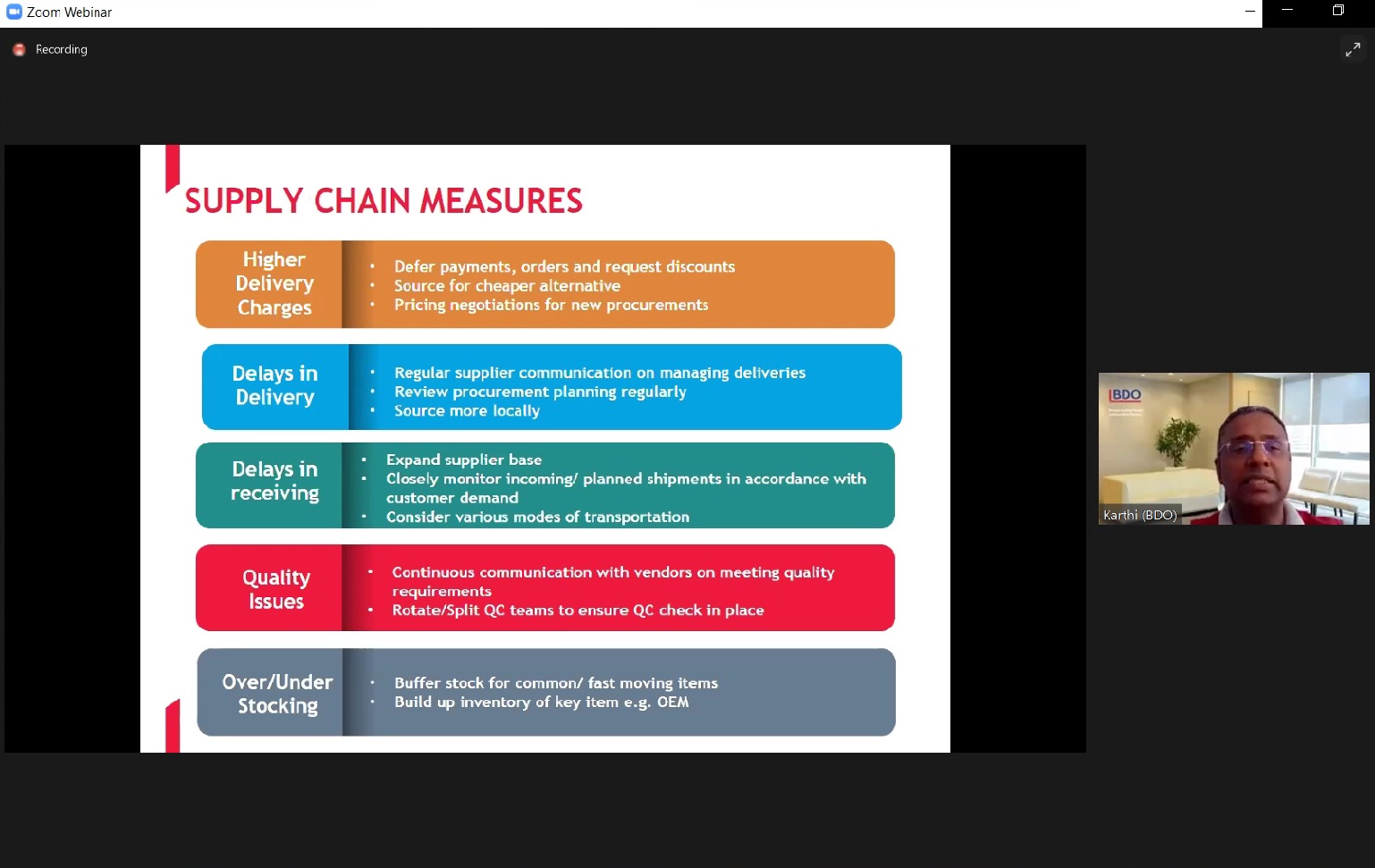
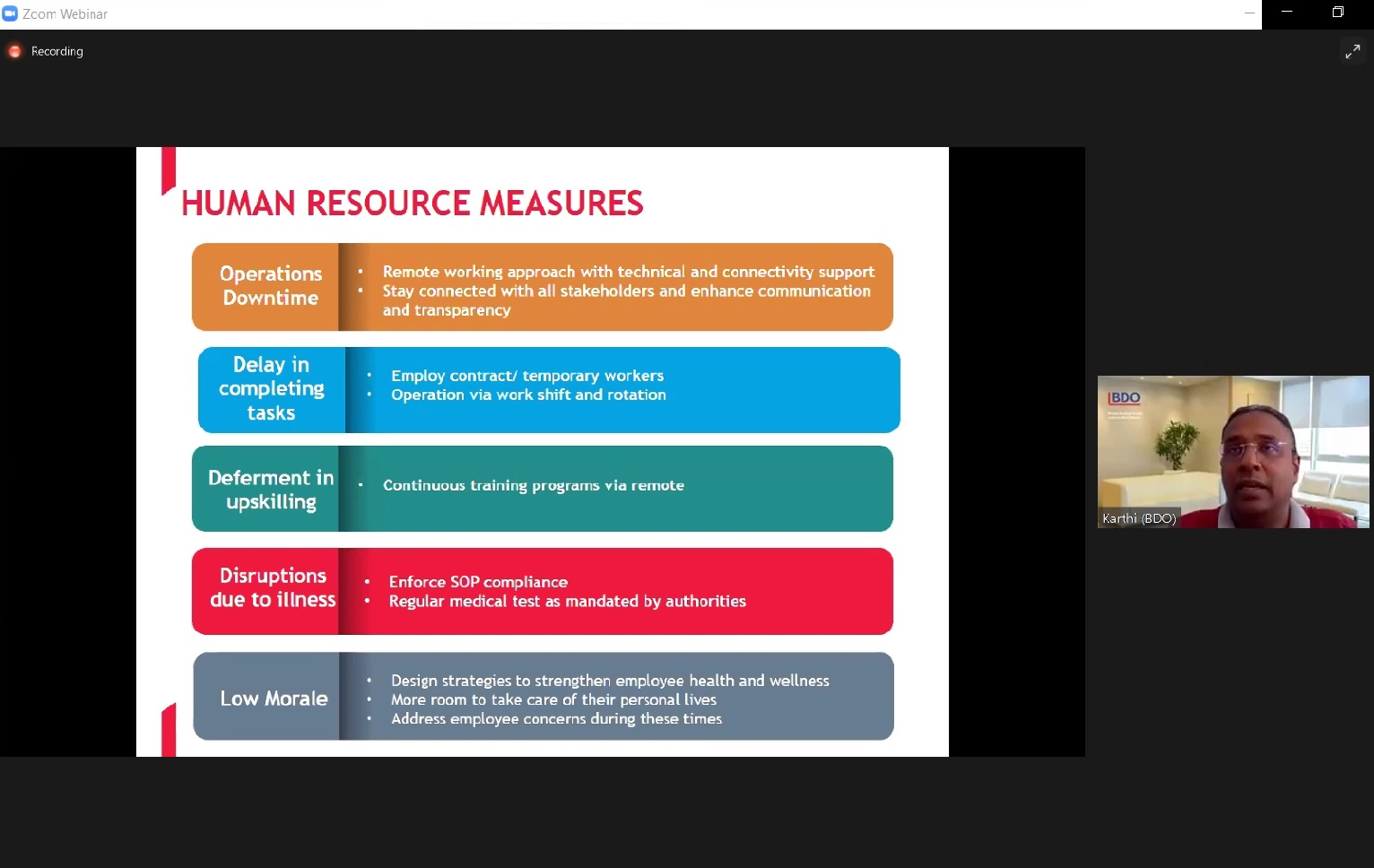
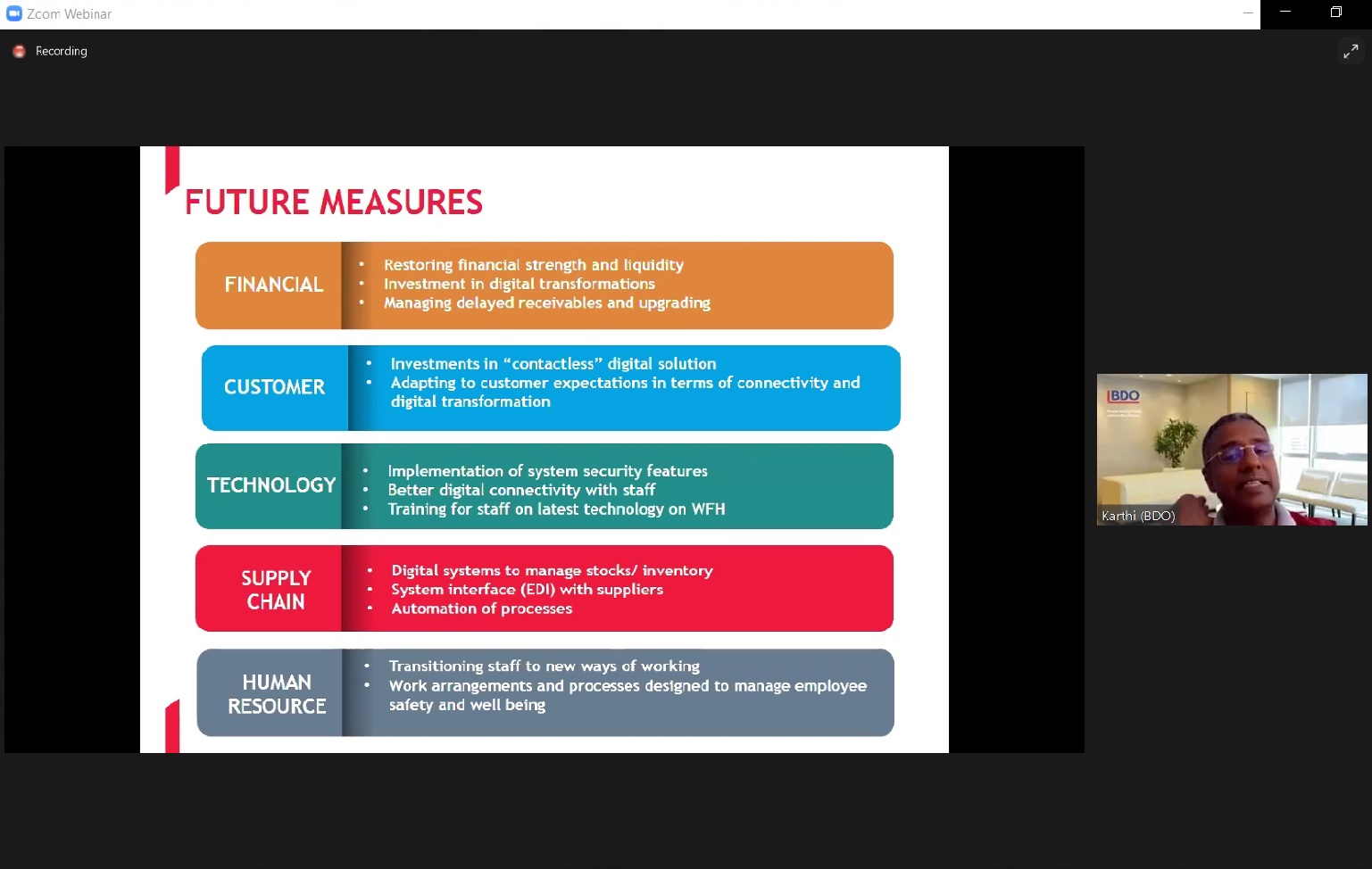
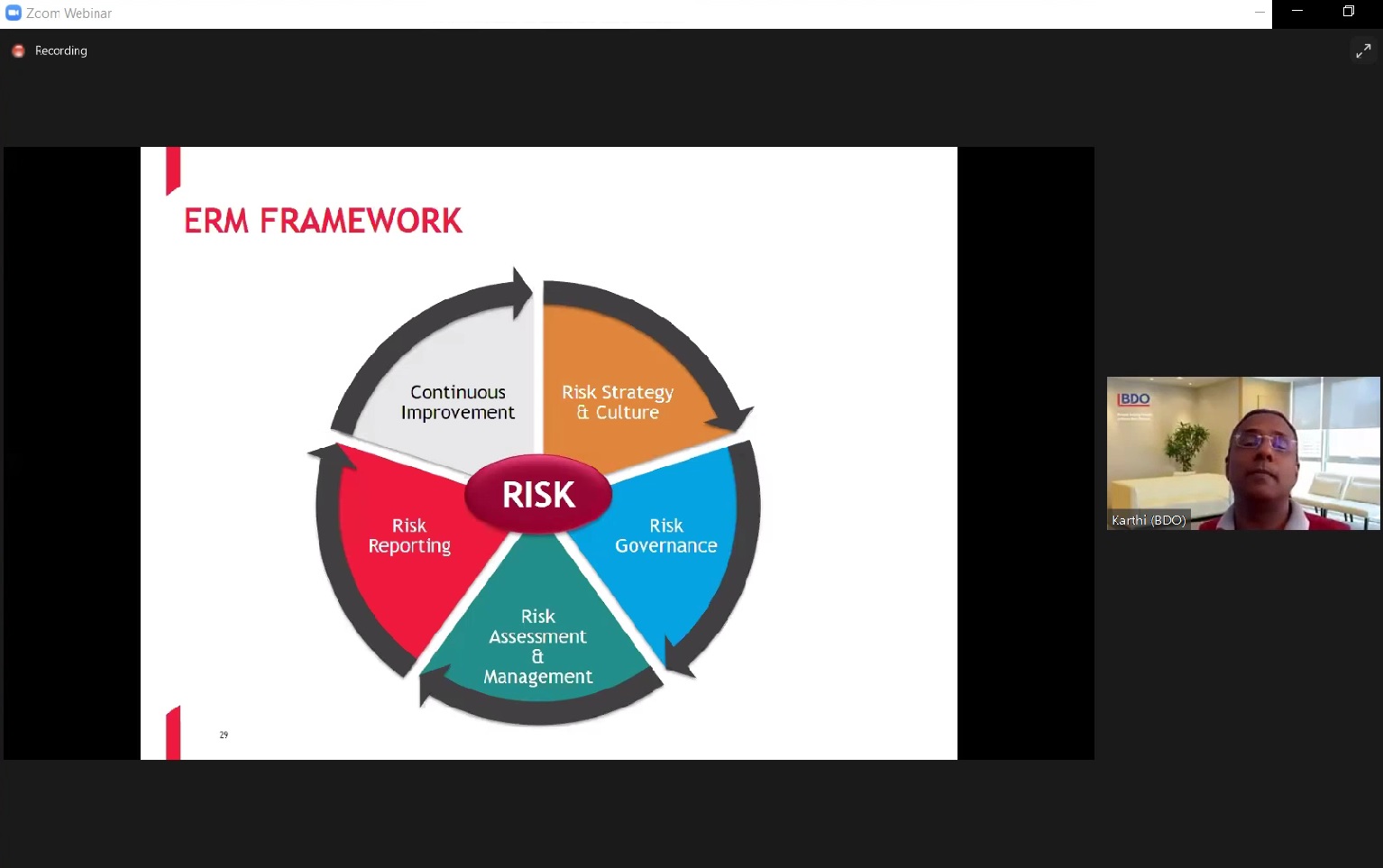
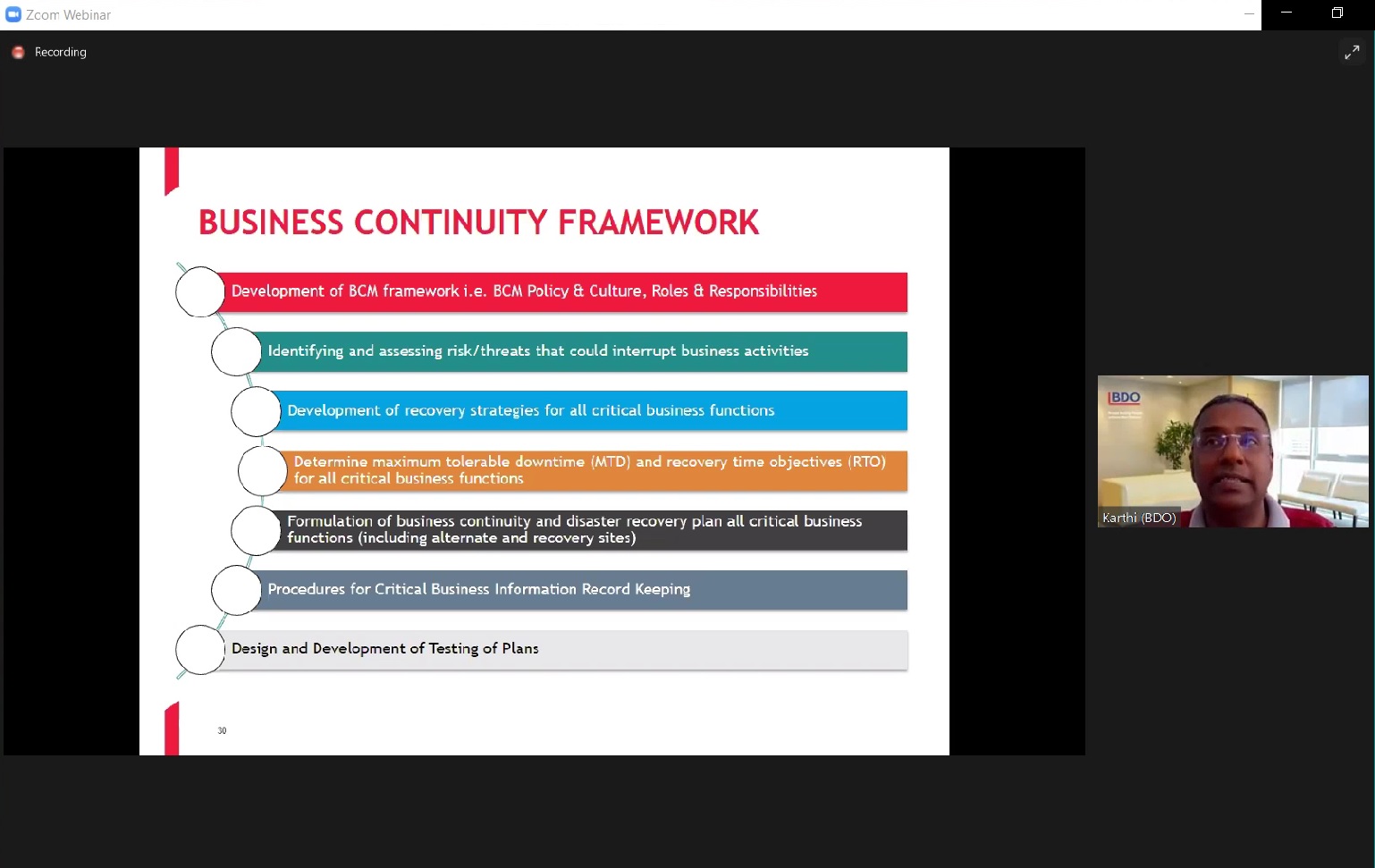
Karthigayan presenting the measures and strategies
Besides, he introduced the BDO risk landscape report 2021 and focused on the top three most significant pressures caused by the pandemic, which were low employees satisfaction and wellbeing; inadequate technology; and internal cultural issues. He further explained the Covid-19 business impact on the five main areas—finance, customer, human resource, technology, and supply chain, as well as discussed the measures and strategies that can be taken by companies. Moreover, he also talked about enterprise risk management (ERM) and business continuity management.
The webinar ended with a Q&A session.
© 2021 UNIVERSITI TUNKU ABDUL RAHMAN DU012(A).
Wholly owned by UTAR Education Foundation (200201010564(578227-M)) LEGAL STATEMENT TERM OF USAGE PRIVACY NOTICE